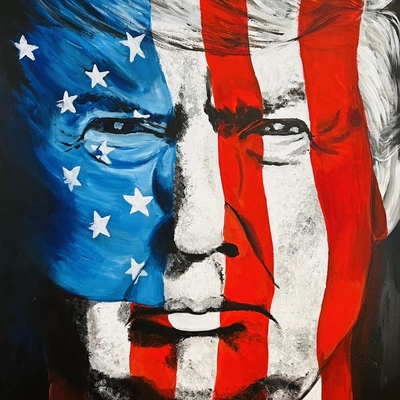Stay informed on the latest Truth Social posts from Donald Trump (@realDonaldTrump) without the doomscrolling. Consider it a public service for your mental health. (Why?)
- The movie-making business has been stolen from the United States by other countries.
- California, with its 'weak and incompetent Governor,' has been particularly hard hit by this situation.
- A 100% tariff on any and all movies made outside of the United States will solve this long-standing problem.
The proposed 100% tariff on movies made outside the United States directly impacts the global film industry. Major studios and entertainment companies, many of which are part of the S&P 500, would need to significantly alter their production strategies, potentially leading to increased costs, supply chain disruptions, and shifts in investment patterns. This could introduce uncertainty and volatility, particularly in the media and entertainment sectors, and might be interpreted as a signal of broader protectionist trade policies affecting other industries.
The proposal of a 100% tariff on movies made outside the United States introduces a significant trade protectionist measure. While not a direct military threat, such an aggressive tariff could lead to retaliatory trade actions from other nations, potentially escalating into broader trade disputes and straining international economic relations.
- Commodities: The direct impact on commodities is expected to be minimal, as the policy targets the entertainment industry rather than commodity-intensive sectors. Any indirect effect would stem from broader economic uncertainty if the tariffs escalate into wider trade disputes, potentially leading to a flight to safety for Gold (XAU) or minor shifts in industrial metals if global growth forecasts are altered.
- Currencies (Forex): The US Dollar Index (DXY) could see mixed reactions. If the policy is seen as a move towards greater protectionism and potential trade conflicts, it might initially strengthen the USD as a safe-haven, but prolonged trade wars could weaken it. Other currencies might react to the degree of their respective countries' involvement in film production or retaliatory trade measures. Short-term watch for Fed expectations, medium-term for global trade policy.
- Global Equities: The S&P 500's media and entertainment sectors, including major studios and streaming companies, would face significant disruption, potentially experiencing declines due to increased production costs and supply chain reorganization. Global equity markets, particularly those with significant film industries (e.g., Europe, Asia), could also see negative impacts due to reduced export opportunities for their film sectors or retaliatory tariffs. Overall risk sentiment might rise, potentially affecting broader indices like Nasdaq, STOXX 600, and Nikkei 225.
- Fixed Income (Bonds): If the policy leads to increased market uncertainty or concerns about trade wars, there could be a flight to safety, driving down US 10Y and 2Y yields. Conversely, if tariffs are seen as inflationary, yields could rise. Credit spreads might widen if corporate profitability in affected sectors is jeopardized. The impact depends on the broader market's interpretation of systemic risk versus specific industry disruption.
- Volatility / Derivatives: The VIX could see an uptick due to increased uncertainty surrounding trade policy and the potential for industry disruption in the entertainment sector. Options on affected media and entertainment companies would likely see increased activity and implied volatility. The extent of the VIX spike would depend on whether the market views this as an isolated sectoral policy or a precursor to broader protectionist measures.
- Crypto / Digital Assets: Bitcoin (BTC) and other digital assets might react as a risk-on asset, correlating with tech stocks and potentially seeing a dip if broader market sentiment sours due to trade concerns. Alternatively, if severe trade conflicts drive traditional market uncertainty and inflation fears, some might view Bitcoin as a hedge, but this correlation is less direct for a sector-specific tariff. The impact is likely indirect, driven by overall liquidity and risk appetite.
- Cross-Asset Correlations and Systemic Risk: The primary risk is a breakdown in normal correlations if the policy is seen as indicative of broader, aggressive trade protectionism, potentially leading to simultaneous sell-offs in equities and other risk assets. Watch for stress in specific corporate credit markets related to entertainment companies. However, for a sector-specific tariff, systemic risk is contained unless it triggers widespread retaliatory actions.
- Retail Sentiment / Market Psychology: The post's direct and decisive tone could resonate with retail investors focused on 'America First' themes. While unlikely to directly trigger meme stock surges, it could influence sentiment around domestically focused industries or specific entertainment companies seen as benefiting from the tariff. Social media discussions would likely focus on the economic impact and potential 'winners' and 'losers' in the film industry.

